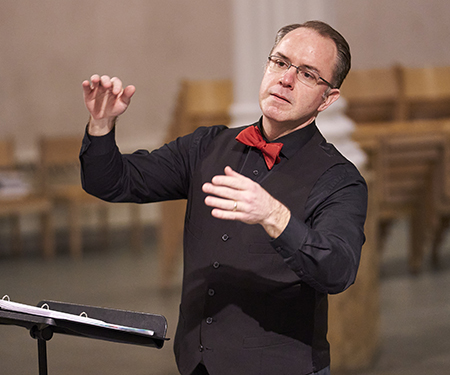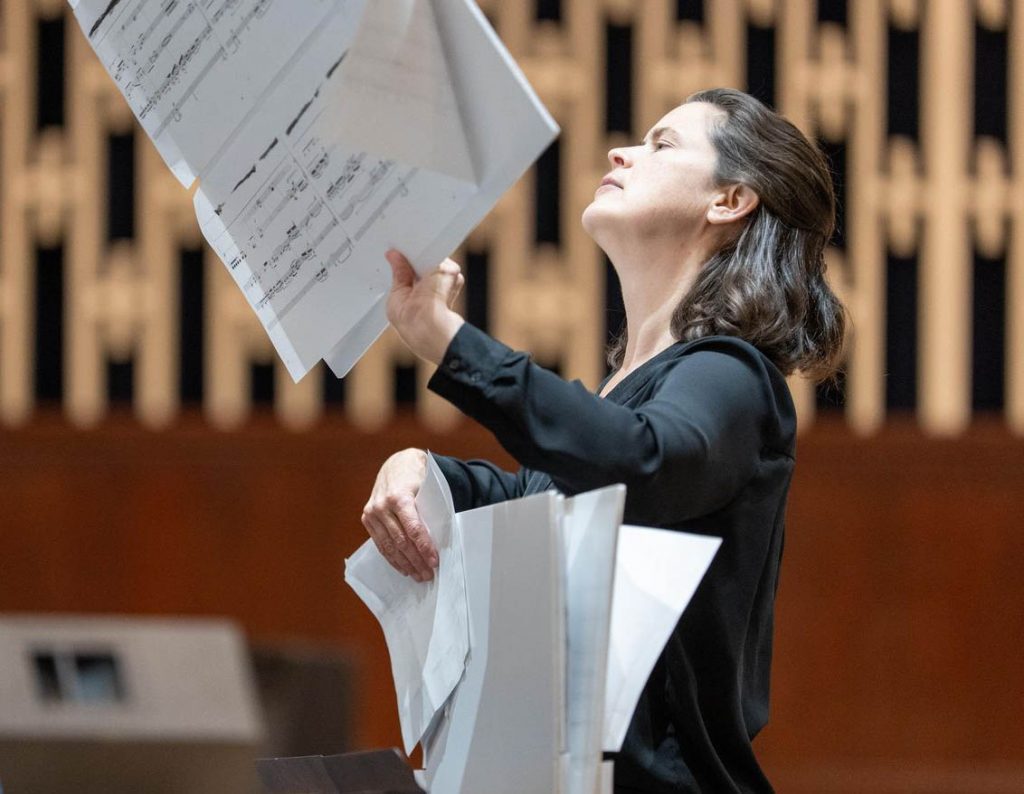By Daniel Hathaway
Tonight at 8, WCLV’s Ovations revisits performances from the three concerts of Local #4 Music Fund’s “She Scores 2023,” which were presented in June.
Tune in on 90.3 or listen online, and view a gallery of composers and artists here. (Pictured: executive director & violist Amber Rogers by Derek Snyder)
NEWS BRIEFS:
The Cavani String Quartet has been appointed ensemble in residence at Cleveland State University for the 2023-2024 academic year. The ensemble welcomes a new violist this season. Ayane Kozasa replaces Eric Wong, who has joined the faculty of Vanderbilt University,.
In a related story, former Cavani founding cellist Merry Peckham will leave her position as chair of chamber music at the New England Conservatory to become assistant dean and director of chamber music at the Juilliard School in New York beginning on January 1.
Single tickets are now on sale for Tuesday Musical’s six-concert series in Akron’s E.J. Thomas Hall, which, features Latin Grammy winner Cuarteto Latinoamericano on Oct. 24, a holiday program by The King’s Singers on Dec. 5, the Kyiv Virtuosi Symphony Orchestra on March 12 & the Jazz at Lincoln Center Orchestra with Wynton Marsalis on April 20. Click here.
Registration is now open for all programming at both campuses of The Music Settlement, including private lessons, Suzuki lessons, and group classes and ensembles. Click here for more information.
INTERESTING READ:

TODAY’S ALMANAC:
By Jarrett Hoffman
One challenge in our almanac is balancing between musicians who are already well-known, and those who deserve better when it comes to legacy.
Today, in an effort to “open the floor,” I decided to simply reach into the bowl of August-30th-music-history and scoop out a handful of names. Several of these musicians I had never heard of, but all proved impressive or delightful to learn about.
We start on August 30, 1767, when composer, pianist, and music editor Christian Friedrich Gottlieb Schwencke was born in Wachenhausen, in the Hartz mountains of Germany. His name lives on as an adjective: he was an early publisher of J.S. Bach’s The Well-Tempered Clavier, and his manuscript of that work’s first Prelude in C major contains the so-called “Schwencke measure,” which might in fact be of his authorship rather than Bach’s — read more in this blog entry from G. Henle Verlag.
Moving to the 19th century, George Frederick Root was born on this date in 1820 in Sheffield, Massachusetts. A pioneer in American music education, Root also found fame during the Civil War through his morale-boosting patriotic songs like Battle Cry of Freedom, which advocated for abolitionism and preservation of the Union. That song was so popular that it was adapted for use by the Confederacy, was used in several political campaigns, and has been included in modern media such as the film Lincoln — the source of the recording linked above.
Born on August 30, 1887 in Budapest, pianist Yolanda Mero moved to the U.S. in 1900. On these shores, she played concertos under Mahler and Stokowski, created several piano rolls, co-founded the New Opera company (becoming the world’s only female impresario at the time), railed against the presence of soap operas and ads on the radio (founding and chairing the Women’s National Radio Committee), and co-founded the Musicians Emergency Fund to support destitute musicians. She plays Liszt’s Hungarian Rhapsody No. 4 here.
Pianist and composer Kate Fanny Loder, who died on this date in 1904 in Headley, Surrey, England, became the first female professor of harmony at the Royal Academy of Music at age 18. After marriage, her career was held back at the insistence of her husband, but by the end of her life she had put together an oeuvre highlighted by several short works for piano, including the Voyage Joyeux in A, heard here in an all-Loder album played by Ian Hobson.
Improvisational skills brought special renown to Dutch ]organist and composer Piet Kee, who was born on this date in 1927 in Zaandam, and who won first prize at the Haarlem International Improvisation Competition three years in a row, 1953-1955. Watch footage of a short improvisation of his on the 1738 Christian Müller organ in St. Bavo in Haarlem here.
(Addendum from Daniel Hathaway, who remembers the opening concert of the Haarlem Festival in 1979 at the Great Church in Alkmaar, which featured Confrontation: An Encounter Of Three Street Organs And One Church Organ,” plus a wandering performer on the serinette, a tiny pipe organ used in France to teach tunes to canaries!)
Closing with a figure who has roots in Northeast Ohio, composer David Maslanka was born on August 30, 1943 in New Bedford, Massachusetts, and graduated from Oberlin Conservatory in 1965. A three-time winner of the National Endowment for the Arts Composer Award, his writing lies in many genres — chamber music, choral, orchestral — but he is best-known for his works for wind ensemble. Among his pieces that are firmly established in the canon is the Symphony No. 4, performed here by the wind symphony of the University of Cincinnati College-Conservatory of Music, led by Kevin Michael Holzman.




